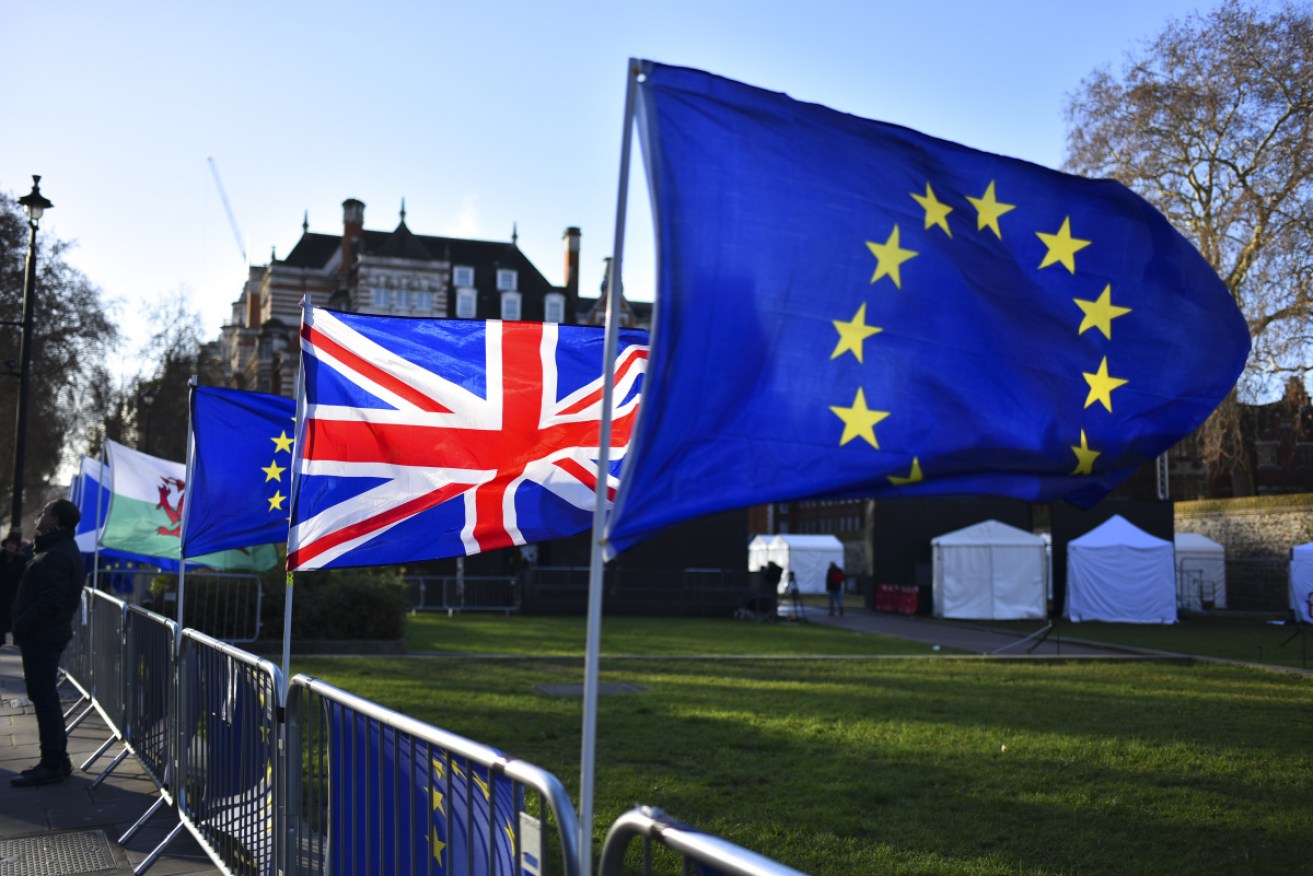Brexit chaos exposes Northern Ireland’s precarious position in UK


Government Ministers continue to seek legally-binding changes to Theresa May's Brexit deal. Photo: Getty
Two seemingly unrelated developments in recent days have confronted Britain with the fact that there is more at stake in its ham-fisted exit from the European Union than a simple undermining of trade and economic growth.
The discovery of four parcel bombs sent to London transport hubs and a Scottish university were found to have been posted from Ireland, prompting police to investigate whether they might have been linked to a recent car bombing in Northern Ireland amid renewed threats by the self-styled “New IRA”.
At the same time, Northern Ireland’s top civil servant, David Sterling, warned local MPs that an unruly Brexit would have a particularly “grave” impact on the province, including “a sharp increase in unemployment”, the danger of social unrest.
While the British pound dropped as soon as the UK voted for Brexit in 2016, the penny is only dropping now for many people that crashing out of the EU could threaten the UK’s own union of England, Scotland, Wales and Northern Ireland.
In Scotland, where 62 percent voted to remain in the EU, the local government is already using Brexit to renew its campaign for independence, knowing that the disruption of a hard Brexit could lift support for a new independence referendum.
Similar fears are now growing about the future of Northern Ireland, where 55.8 percent voted against Brexit but the province’s MPs in the House of Commons have played a decisive role in enabling Prime Minister Theresa May to push forward with leaving the EU.
Karen Bradley, the UK Cabinet Secretary responsible for Northern Ireland, has reportedly warned her Cabinet colleagues that a “no deal” Brexit, in which the UK leaves the EU without a negotiated transition agreement to soften the jolt of departure, could sharply increase the chances of the province voting to join the Republic of Ireland.

Northern Ireland Secretary Karen Bradley leaves following the weekly cabinet meeting at 10 Downing Street on March 5. Photo: Getty.
The Brexiteers’ desire to “take back control” of their own borders and economy from Brussels might therefore end up with them needing to find a new name for a shrunken nation that no longer unites the kingdoms of Scotland and England and the principality of Wales in “the United Kingdom of Great Britain and Northern Ireland”.
The problem is that the Good Friday Agreement, the 1998 peace deal which ended three decades of blood-soaked “Troubles” in the province, was largely based on using Ireland’s and Britain’s shared membership of the EU to soften the dispute over sovereignty on the island of Ireland.
Thanks to that deal the fortified border disappeared and for 21 years people have been able to cross at will to study, work and do business, and to identify themselves as British, Irish or both by taking whichever passport or passports they want.
Turning that border into a new dividing line between the trading and legal systems of the EU and the UK will inevitably impose new barriers to commerce and shared identity, pulling the two communities further apart.
Part of the Good Friday Agreement says that Mr Bradley or a future Secretary for Northern Ireland must authorise a referendum on unification with the south if the Secretary ever believes it is “likely” that most people in Northern Ireland would back unification.
The last such referendum in 1973 saw a 57 per cent vote for staying in the UK, a majority that has traditionally been based on demographics and rational assessments of economic self-interest.
The largely Protestant “unionist” community has outnumbered the more “nationalist” Catholics, while many moderates and non-aligned voters have been swayed by the fact that the Republic was poorer and more socially regressive than the UK.
Not any more. Higher birth rates mean the Catholics in the north will overhaul the Protestants within a few years, and the richer and more socially progressive territory is now the Republic, which has a gay Prime Minister and has updated its abortion, divorce and gay marriage laws while Northern Ireland continues to limit access to abortion.
The ground is certainly shifting in Northern Ireland. The province’s Social Democratic and Labour Party has just announced an alliance with Fianna Fail, one of the two main parties south of the border, an historic step in the adoption of an all-island approach to politics.
Throw into that mix the economic disruption of a hard Brexit as investment flees south to further increase the north’s economic disadvantages, and the Northern Ireland Secretary may within a few years be confronted by a string of opinion polls showing that most voters do support unification with the Republic.
Ms May’s Government admitted the economic risks in its own assessment last week of the potential costs of leaving the EU without a transition deal, warning “there is an expectation of disruption to closely interwoven supply chains and increasing costs that would affect the viability of many businesses across Northern Ireland.”
“This could result in business failure, and/or relocation to Ireland with knock-on consequences for the Northern Ireland economy and unemployment. Northern Ireland is particularly vulnerable (especially) the agri-food sector… given its reliance on cross-border supply chains.”
If a referendum does decide to stay in the UK, the Good Friday Agreement says the question cannot be put again for seven years but nationalists will simply play the long game, trying again each seven years knowing that they only have to win once to achieve their goal.
It is no wonder that some members of Ms May’s Cabinet are now worrying about going down in history as the people who dis-united their Kingdom.








